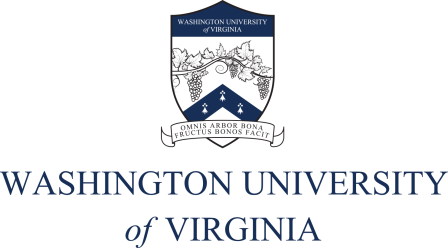Doctor of Ministry
December 13, 2023 2024-06-03 15:30Doctor of Ministry
The Doctor of Ministry Degree Program is designed to provide the highest professional education in various areas of ministry for the students who are successfully engaged in ministry.
Objectives
Each graduate of the D.Min Degree Program will be able to:
- Objectively evaluate the ministry in which the student has been involved.
- Analyze and understand problems that have hindered the ministry from spiritual maturation.
- Share these struggles with fellow pastors, see how they cope with these difficulties, and learn from each other about how to deal with them.
- Formulate diverse strategies to overcome these obstacles and discover which strategy may best work for the individual church.
- Create a project which one can implement to achieve the devised strategy.
- Report the outcome of its implementation so that fellow pastors may benefit from it.
Admission Requirements
WUV accepts those who have earned a MDiv. degree from accredited institutions or its equivalent. Candidates are required to have had three years of ministry experience after receiving an MDiv. degree or the first graduate theological degree which may include the minimum of 72 graduate semester hours of theology, biblical studies, and the arts of ministry. For those who fall outside these requirements of admission, the Admissions Committee of the Doctor of Ministry (ACDM) will review each case to determine admission.
Candidates are required to have earned a minimum cumulative grade point average of 2.5 (on a 4.0 scale) for master’s level work. Students whose GPA is below this level may be provisionally accepted into the program. These candidates will be put on probation until they successfully complete ten credit hours. Additional class work to improve their grades may be required.
Candidates are required to have earned a minimum cumulative grade point average of 2.5 (on a 4.0 scale) for master’s level work. Students whose GPA is below this level may be provisionally accepted into the program. These candidates will be put on probation until they successfully complete ten credit hours. Additional class work to improve their grades may be required.
Applications
Doctor of Ministry Degree applications are received and reviewed several times a year, but applications should be submitted to WUV (Neal T. Jones Seminary) at least a month prior to the first seminar. Accepted students may start their studies with any of the DMIN. seminars offered regularly or modularly throughout the year. The ACDM may grant admission based on the required credentials alone or request the applicant to submit additional materials and/or schedule an interview with the applicant. The Director of the DMIN. Degree Program will conduct the interview. Admissions policies and procedures are subject to change without notice. New students are required to submit a non-refundable tuition deposit to confirm acceptance of admission.
Unless candidates start the program within one calendar year of admission, they will automatically lose eligibility and must go through the admissions process again.
Required Documents for Application
- Application Form
- Transcript for MDiv. or its educational equivalent from an accredited institution. The transcript should show a minimum of 72 graduate semester hour credits in theological and ministerial study with a minimum cumulative grade point average of 2.5 (on a 4.0 scale).
- Official transcripts from all other postsecondary institutions attended.
- Statement of three years of ministry experience after his or her first graduate theological studies
- Resume and Statement of the Purpose of Study
- Three Reference Letters: two from pastors and one from a professor
- $100 non-refundable application fee
Program of Study
To complete the DMIN. Degree Program, candidates must satisfy two basic elements: Course work and Project or Thesis. Here the “Project” refers to a particular casework carried out in tandem with the candidates’ ministry. The final product of the project will take the shape of a well-researched report. The “Thesis” indicates a written work that proves a candidate’ theological assertion or view on certain aspects of ministry by means of practical examples. The degree shall be completed within a minimum of three years to maximum six years. Students whose programs continue into a fourth year will be charged a continuation fee for that year and any additional approved years. To earn the DMIN. degree, students must successfully complete 36 credit hours that consist of 30 hours of course work and 6 hours of project/thesis writing.
Course work
The course work is to be completed within the first three years. The course work can be implemented on a semester basis or an intensive basis. A semester course work consists of guided studies with assignments and seminars during the given semester. An intensive seminar format consists of three parts.
First, three months prior to the intensive seminar, students will receive information on the forthcoming seminar with a list of required reading and written works for each course. These pre-seminar assignments are to be completed before the seminar begins. The written assignments will be graded as part of each intensive seminar.
Second, the intensive seminar-proper will last a week, from Monday morning until Friday afternoon. During that week there will be lectures by designated instructors for the assigned topics. It will be a time of interaction with the instructors and with other students.
Third, a project is to be completed after the seminar based upon the reading and class work. The purpose of the project is to enable the seminar students to integrate the course content with his or her ministry. This project will be graded as part of the intensive seminar class. A given semester course work or a given intensive course work may be adjusted to incorporate new situations of the semester or the intensive course work.
First, three months prior to the intensive seminar, students will receive information on the forthcoming seminar with a list of required reading and written works for each course. These pre-seminar assignments are to be completed before the seminar begins. The written assignments will be graded as part of each intensive seminar.
Second, the intensive seminar-proper will last a week, from Monday morning until Friday afternoon. During that week there will be lectures by designated instructors for the assigned topics. It will be a time of interaction with the instructors and with other students.
Third, a project is to be completed after the seminar based upon the reading and class work. The purpose of the project is to enable the seminar students to integrate the course content with his or her ministry. This project will be graded as part of the intensive seminar class. A given semester course work or a given intensive course work may be adjusted to incorporate new situations of the semester or the intensive course work.
Major Project or Thesis
The major project or thesis is the highlight of the DMIN. Degree Program. It is designed to help students to think theologically about ministry by requiring them to apply new concepts and methods to their ministries. The proposal (prospectus) for the project or thesis must be formally approved by the candidate’s Project/Thesis Committee. One faculty reader will be designated as the first reader and the other two faculty readers as second readers to the candidate during the project or thesis writing. The first reader will read the student’s thesis or project and guide the student to complete the work through giving feedback and recommendations for further reading and research. If the candidate is not able to submit his/her final project/thesis in an electronic file format by May 15, a preliminary graduation certificate will be awarded to him/her at the graduation ceremony. The student shall submit his/her final project/thesis within the time limit set during the oral defense. When the school receives the student’s final project/thesis, it will issue the original doctoral diploma to him/her.
Oral Defense
Upon preliminary approval of the project/thesis by the first reader and reviewers, the student shall ask a meeting for his/her oral defense. The oral defense shall take place at least two weeks prior to the graduation date. During the oral defense the first reader and/or second readers may give further comments and the preliminary project/thesis shall be finally approved.
Curriculum
The 36-hour DMIN Degree Program consists of the following:
• Research Methods (0 credit)
• Four (4) Core Courses (12 credits):
• RS 921 Project/ Thesis Writing (6 credits)
• Research Methods (0 credit)
• Four (4) Core Courses (12 credits):
- BIB 852 Analysis of Preaching in the Bible (3 credits)
- CNS 801 Pastoral Psychotherapy (3 credits)
- THL821 Diaspora Theology: Divine Scattering and Gathering
- THL 851 Advanced Systematic Theology in Ministry (3 credits)
• RS 921 Project/ Thesis Writing (6 credits)
Thirty (30) credits of seminars, 0 credits of Research Methods, and six (6) credits of project/thesis. Each seminar consists of three (3) credit hours, with only one exception of Research Methods of 0 credit hour. If deemed necessary, new areas or seminars may be added.
Six Elective Courses for the Doctor of Ministry Degree Online Program are selected from the following options, with the possibility of adding additional courses if needed:
* BIB 851 Advanced Biblical Interpretation and Preaching
* BIB 823 Jesus’ Resurrection: A Starting Point of Biblical Theology
* BIB 831 Biblical Analysis and Evaluation of Churches in the New Testament
BIB 853 Biblical Interpretation that Transforms Preaching
BIB 854 Advanced Biblical Preaching in the Gospel of Luke
BIB 855 Preaching from the Romans
BIB 856 Relational Preaching from the Corinthian Correspondence
BIB 861 Advanced Exegesis of the Bible
BIB 862 Preaching from the Theological Conflicts of the Apostolic Church
BIB 866 Points of Preaching from the Gospels
BIB 869 Points of Preaching from the Revelation
CHM 851 Modern Leadership and Pastoral Leadership
CHM 871 Multi-cultural Church Ministry
* CNS 810 Counselor Spirituality and Identity
* CNS 821 Advanced Pastoral Counseling
* CNS 825 Advanced Marriage and Family Therapy
CNS 826 Pastoral Family Counseling
CNS 832 Pastoral Marriage Counseling
CNS 848 Crisis Ministry and Clergy Self-Care
EDU 820 Christian Education and Educational Ministry
ETH 851 Current Ethical Issues
* THL 870 Theology of Ministry for the Korean Congregations
(*: Priority Elective Courses)
* BIB 823 Jesus’ Resurrection: A Starting Point of Biblical Theology
* BIB 831 Biblical Analysis and Evaluation of Churches in the New Testament
BIB 853 Biblical Interpretation that Transforms Preaching
BIB 854 Advanced Biblical Preaching in the Gospel of Luke
BIB 855 Preaching from the Romans
BIB 856 Relational Preaching from the Corinthian Correspondence
BIB 861 Advanced Exegesis of the Bible
BIB 862 Preaching from the Theological Conflicts of the Apostolic Church
BIB 866 Points of Preaching from the Gospels
BIB 869 Points of Preaching from the Revelation
CHM 851 Modern Leadership and Pastoral Leadership
CHM 871 Multi-cultural Church Ministry
* CNS 810 Counselor Spirituality and Identity
* CNS 821 Advanced Pastoral Counseling
* CNS 825 Advanced Marriage and Family Therapy
CNS 826 Pastoral Family Counseling
CNS 832 Pastoral Marriage Counseling
CNS 848 Crisis Ministry and Clergy Self-Care
EDU 820 Christian Education and Educational Ministry
ETH 851 Current Ethical Issues
* THL 870 Theology of Ministry for the Korean Congregations
(*: Priority Elective Courses)
36 Total Credit Hours
Graduation Requirements:
To complete the DMIN. Degree Program, candidates must satisfy two basic elements: Course work and Project or Thesis. Here the “Project” refers to a particular casework carried out in tandem with the candidates’ ministry. The final product of the project will take the shape of a well-researched report. The “Thesis” indicates a written work that proves a candidate’ theological assertion or view on certain aspects of ministry by means of practical examples. The degree shall be completed within a minimum of three years to maximum six years. Students whose programs continue into a fourth year will be charged a continuation fee for that year and any additional approved years. To earn the DMIN degree, students must successfully complete 36 credit hours in total, that consist of 30 hours of coursework and 6 hours of project/thesis writing.


